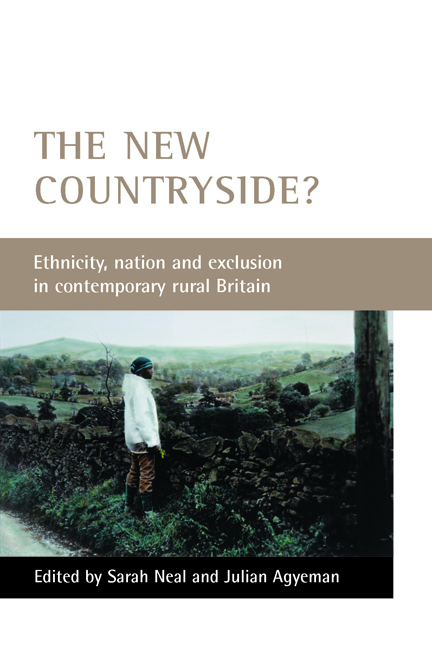Introduction
Published online by Cambridge University Press: 18 January 2022
Summary
Beginnings
In Kazuo Ishiguro's wonderful The remains of the day, a 1950s-set novel about class, love and social change, the central character, Stevens, an ageing butler to a country house, embarks on tour of England's West Country. Stopping outside Salisbury Stevens is advised by a local man to climb a hill for the view. Rather crossly (the hill is steep) he does so and encounters ‘the most marvellous view over miles of surrounding countryside … field after field rolling off into the far distance. The land rose and fell gently and the fields were bordered by hedges and trees … To my right, almost on the horizon, I thought I could see the square tower of a church’ (Ishiguro, 1989, p 26). Later that night in his hotel room in Salisbury it is this view that Stevens recalls:
the English landscape at its finest – such as I saw this morning – possesses a quality that the landscapes of other nations, however more superficially dramatic, inevitably fail to possess. It is I believe, a quality that will mark out the English landscape to any objective observer as the most deeply satisfying in the world, and this is probably best summed up by the term greatness. (Ishiguro, 1989, p 28)
We begin by quoting from Ishiguro because he describes, through Stevens, the sensuous appeal of the English countryside and its core place in an imagining of not only nation but the superiority of a nation. What is apparent in the figure of Stevens is Rodaway's (1994, p 5) distinction between sense and senses. Stevens’ gaze from the hill across the pastoral English landscape incorporates a process of making sense, ‘sense as meaning’ (seen in his connection between the view and the ‘greatness’ of England) and a process in which the senses, particularly sight, shape his emotional experience of ‘feeling’ the view (its ‘pleasures’, ‘fineness’, ‘marvellousness’). This is an important and perhaps overlooked point in discussions of the race–ethnicity–rural relation. The rural landscape itself gets a little lost in research and arguments about the extent and experiences of racism and marginalisation and exclusion. The loveliness of the rural sweeps of Britain tends to vanish in critiques of its constructedness and its potency as a signifier of a very particular version of national belonging and culture. Of course, in part it is the loveliness of rural landscapes, the ways in which they are seen and made sense of that underpin discourses and practices of inclusion and exclusion. Relph (1976, p 122) argues that ‘landscape is not merely an aesthetic background to life, rather it is a setting that both expresses and conditions cultural attitudes and activities … landscapes are therefore always imbued with meanings that come from how and why we know them’.
- Type
- Chapter
- Information
- The New Countryside?Ethnicity, Nation and Exclusion in Contemporary Rural Britain, pp. 1 - 18Publisher: Bristol University PressPrint publication year: 2006



